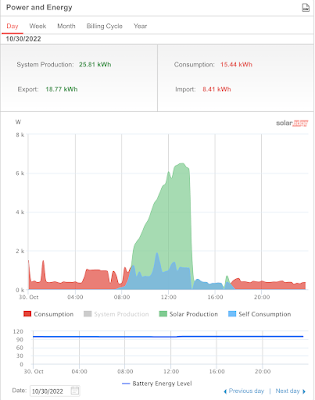(Originally published on Nov. 6, 2011. I actually don't watch "60 Minutes" anymore and this isn't nearly as interesting a story as it seemed 11 years ago. But here it is for posterity or something. -Ed.)
Andy Rooney died yesterday. He was 92. I’ve been watching CBS' "60 Minutes" for as long as I can remember. My parents would always put it on every Sunday which was usually dinner time in my house and that generally meant that I watched it too. Rooney didn’t begin his show-ending monologues until 1978 when it replaced the Point/Counterpoint segment featuring Shana Alexander and James Kilpatrick. I didn’t take much notice of Rooney until I was a teenager in the 1980s and had taken an interest in writing and journalism and harbored dreams of being a newspaper opinion columnist. Rooney personified the folksy, grumpy, common-sense curmudgeon and could make you roll your eyes, but I guess I found something about him to like and stuck with it.
Dear Andy,
I’ve watched your segments on “60 Minutes” every Sunday since I was a young kid. I didn’t always get what you were saying, but I got enough to know that I liked you. It probably had something to do with me getting into the media business myself.
All these years you’ve talked about the silly things that people send you, your junk mail, the mess on your desk, the stuff you find in your attic and other curiously revealing trivia. But I’ve always wanted to know more about what we see in the background behind you every week: Your bookshelf.
When I visit someone’s home I sometimes find it interesting, if I can do it politely, to peek at what’s on their bookshelf. You’ve been inviting me and millions of other people into your office for years. As someone who like you, values the written word and the simple pleasure of reading a great book, I’m curious about what’s on that bookshelf of yours and why. I doubt it’s junk, and I’m certain it would be revealing. How about a little tour?
I’m certain Rooney never read that email, and though I can’t prove it, I’m betting it got passed to a CBS producer who did. Because two months later, Rooney closed the April 22, 2007 edition of 60 Minutes with a segment that included a few of his favorite books. They were: three dictionaries; a heavily used edition of Modern English Usage by Henry Watson Fowler; Walter Lippman’s A Preface To Morals; four leather-bound volumes by Charles Darwin; and the fifth edition of The Modern Researcher by Jacques Barzum and Henry Graff, also heavily used.
Over the years of watching I had noticed two others. One I recognized because I own it, and one I recognized because I knew of it. The one I own, and which is plainly visible in Rooney’s final commentary is The Good Times, a memoir of Russell Baker’s years as a reporter for The Baltimore Sun and columnist for The New York Times. It is often neglected in favor of his better-known personal autobiography Growing Up. The other, which I know by reputation is Words on Words by the late, legendary journalism professor John Bremner.
Two years later I got the chance to meet Rooney. The occasion was the 2009 Deadline Club Awards dinner at the Waldorf Astoria Hotel in Manhattan. I was a finalist in the science and technology reporting category, for a series of stories I wrote for BusinessWeek.com called “Unconnected America,” which examined how the lack of access to broadband Internet connections affected people in various walks of life and in different places. I lost out to a Time Magazine cover story, “The Clean Energy Myth.”
There was, before the banquet, a cocktail party lasting an hour or so, and Rooney happened to be there. And I noticed that my then-colleague, BusinessWeek writer David Kiley was talking to him rather enthusiastically at a set of chairs surrounding a table as if he knew him well. It turns out he did, so I ventured over to where they were sitting and waited for a chance to introduce myself.
It came. I told him about the letter I had written him and before I could get to the part of his segment on books, he cut me off.
“And I didn’t write back, right?”
“No, and I didn’t expect you to,” I said. Then I told him about the segment on books, and that I had always been curious about them because I had been watching since I was young.
“Well, how old are you?” I was 38 at the time, but my answer was “I’m not quite 40.”
At this, he got a little indignant. He called across the table to a female friend he referred to by her last name — I didn’t catch it. “You’re really 39? Hey, do you believe this guy is 39?” he said to her.
“If he is he’s very lucky,” she said to him and grinned at me.
Then he looked back at me. “Well, you look older.”
I couldn’t argue with that. And I couldn’t help but smile at having been insulted by Andy Rooney.
(Photo from 2008 by Stephenson Brown. Originals here. Used under Creative Commons 2.0.)
.jpeg)



